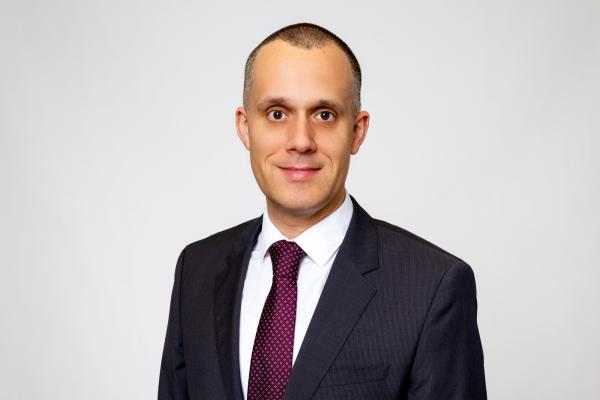The Future of Private Markets in Switzerland and Allocation to Private Markets in Switzerland was launched as a co-joint initiative of CAIA Association and Stableton Financial AG.
Below are a few of the key findings...
“Your greatest and most powerful investment strategy is going to be the speed at which you handle the speed of change. That speed of change is trend.”
Ajaero Tony Martins
We open with this quote to highlight not only what inspires investors today but to draw attention to the current re-shaping of global investment markets. Consider this: in a relatively short period of time, alternative assets globally have grown from just under USD 5 trillion to close to USD 18 trillion (2020), according to CAIA Association estimates. And, perhaps more importantly, alternative investments once dominated by various trading strategies have a new inflection point – private markets made up of private equity and debt, venture capital, private infrastructure, and private real estate.
This is our inaugural survey of investment allocation within private markets in Switzerland, a study whose main purpose is to better understand how Swiss investment professionals use or intend to use these assets within diversified portfolios. This survey conducted in spring 2022 in Switzerland.
We see at least three motivations for undertaking this study. First, because private markets are by definition insulated from the transparency of public markets, readers will likely gain first-hand insights with respect to opportunities in this setting. Second, these same insights will expose the other side of the coin – that of the key challenges that await private market investors. And finally, because Swiss markets have a history of trend setting, our conclusions may indeed provide both clarity and insights with respect to the global portfolio of the future.
With respect to our overall findings, consider these five take-a-ways:
1 Key Opportunities
Investors seek exposure to private market investments mainly for performance potential and return diversification. But most importantly, the survey unveils that a high number of investors view private markets as a way to both differentiate the portfolio and to signal manager and investment quality.
2 Key Challenges
Access to private market investments, be it to specific opportunities or to managers, is the most frequently mentioned challenge. Also, perceived risk of private investments is a frequently cited reason not to invest. Not surprisingly, devoting resources to due diligence, either internally or through quality external providers, is essential in overcoming these challenges.
3 Key Levers for Success
Swiss investment professionals are particularly experienced and sophisticated, holding advanced degrees and numerous professional designations. There is evidence that the level of education held by respondents in our survey is higher than the average of the overall financial services industry. This feature bodes well for the growth of private market investments in Switzerland.
4 Key Means to Access
Constraints such as minimum investment size and regulations provide formidable barriers to direct investment in private markets. However, investment vehicles such as feeder fund structures and structured products are favored options to gain access to those unable or unwilling to invest into LP-type structures.
5 Key Future Insights
Survey participants expect to increase allocation to private markets over the next 12 months. This is especially true for banks and wealth managers. Although the interest rate cycle has likely turned, this does not seem to deter investors’ appetite for private markets. Important future themes relate to technological advancements, health, and ESG.
Analysis of Private Markets
PRIMARY INVESTMENT OBJECTIVES
When asked about investment objectives (Chart 5), the two most mentioned were capital gains followed by capital preservation & wealth accumulation. Against the current backdrop of rising inflation, it would seem reasonable that investors would look to private markets as a way to provide inflation protection to their portfolio. While opinions and back-testing vary on the extent to which the various asset classes perform well in an inflationary environment, there is some consensus that public equity, private equity, private infrastructure, and private real estate performs well in this regard. Hence, according to survey respondents, it seems that investors believe in the ability of private markets to provide inflation protection, attesting to private markets fundraising reaching record highs11 globally at the start of the recent inflation escalation in 2021.
DIFFERENTIATING FACTORS
The question focusing on reasons to invest in private markets drew the expected responses of performance potential and low correlation/ diversification (Chart 6).
Perhaps as important was the high number declaring differentiation (first mover, innovator, exclusive access) as a key reason to be active in this investment area. Differentiation was especially the choice of those in family offices and banks. Of course, providing access to alternatives requires capabilities in the areas of due diligence, structuring and life cycle management. Thus, investors look toward private markets for performance potential12, diversification benefits, and inflation protection, while firms offering access to private markets can achieve differentiation but need to provide requisite investor services.
MOST PROMISING INVESTMENT THEMES
Private equity, venture capital and private debt were mentioned by most survey respondents as being the most attractive segments of the private market space, while hybrid/mezzanine is the least attractive segment (Chart 10). With respect to investment themes, new technologies such as artificial intelligence and fintech (also regtech and insurtech) are mentioned most often, followed by health and environmentally driven segments such as impact investing, climate investing, and ESG (Chart 11). While these themes are clearly dominant across the entire risk-premium spectrum, private markets, particularly private equity and venture capital, are perhaps the most suitable way to gain exposure to these dominant themes.
KEY CHALLENGES
The most mentioned challenge when it comes to allocating to private markets was access to good deals, a consistent response across all types of organizations. Ironically, many of the other challenges listed in Chart 12 are somewhat muted in private markets. For example, alternative investments can only be distributed to professional and institutional investors, thereby excluding small investors. Thus, surveyed investors currently not invested in private markets, and who don’t intend to invest, cite overall portfolio incompatibility (unpredictable capital calls, achieving a stable allocation, difficulty in aggregating across other asset classes), regulatory hurdles (not permitted, unfavorable tax treatment, no vehicles/formats, etc.), lack of liquidity, and risk as important factors.
The constraints related to deal access appear to be formidable and cannot be easily dismissed. Indeed, a large part of the institutional value proposition depends on gaining access both to superior opportunities and top-quartile managers. Meeting this challenge requires a network of qualified employees trained for the specific purpose of sourcing opportunities, performing due diligence as well as finding suitable vehicles for accredited investors. Proper due diligence capabilities should be able to limit risk, at least as far as outliers in a return distribution are concerned and help overcome information asymmetry.
In summary, the survey shows that the biggest barrier to entry with respect to allocating to private markets is access to deals and finding good managers. Although the perceived risk of private investments is frequently mentioned as a reason not to invest, a proper due diligence team could mitigate this concern.
SOURCING AND DUE DILIGENCE
Concerning the sourcing and due diligence of private market investments, a dedicated private market team (Chart 13) performing these tasks was most mentioned. While creating a network is particularly important, especially for securing access to investments, finding external sourcing partners had high importance. With respect to partners’ qualities (Chart 14), the following factors mentioned by most investors as particularly important are track record and reputation, followed by team experience and facilitating access to deal exits. Note that many of these qualities are to a large extent interconnected.
In summary, access to deals and due diligence are particularly important capabilities. Should the investor not have dedicated resources, external providers or partners can add value.
INVESTMENT VEHICLES
The vehicle through which investors can access private markets is a crucial topic to examine, as it is very much interconnected to limiting factors and reasons not to invest in private markets.
According to survey respondents (Chart 15), primary investments as limited partners (LP) are the most favored means for institutional investors to gain exposure to private markets. However, in a market with many banks and bank related asset and wealth managers, those types of LP interests are often not easily bookable and require a very high minimum investment. Our survey found that co-investments, secondary investments, and investments into one or even several limited partnerships through feeder fund structures also create pathways to invest. Investments into one or several structured products are especially favored by independent wealth and asset managers.
In summary, only few, mostly institutional, investors, can invest directly in a private markets portfolio as an LP. Feeder funds and structured products have the potential to open access for investors unable or unwilling to invest into such LP structures, irrespective of the type of investor.
Conclusion
This Swiss investor survey substantiates and authenticates the attractiveness of private market investments.
The key qualities of these markets are performance, diversification, and differentiation.
Technology, health and ESG-related themes are deemed most promising. Access to good investment opportunities and their due diligence are important capabilities to any private equity investor, requiring both experienced and well-educated investment professionals. External partners can also be useful in that respect.
Gaining access to private markets through appropriate vehicles is of paramount importance, particularly to non-institutional investors.
Assuming that Swiss investors are representative of investors globally, these findings provide insights into the allocation to these markets.
About the Author:
Olivier P. Müller has almost 20 years of financial services industry and leadership experience. He holds a Master of Science in Business and Economics and has been a CAIA Charterholder since 2008. He also holds the CFA, FRM and CIPM designations. He is an independent investment advisor.

Prior to his current role, Olivier P. Müller was at Credit Suisse for more than 18 years in many roles, including portfolio management, trading research, equity and credit research, investment strategy and most lately he was assuming a broad leadership role within the CIO organization, working on multi-asset advisory and discretionary solutions as well as on investment communication. He is a Chapter Executive in Zurich, Switzerland.
Nelson Lacey, Ph.D., CFA is the Co-Director of Examinations for CAIA, a position he has held since 2004. In this role Professor Lacey directs a team that is responsible for managing the entire exam process. Professor Lacey has been with the CAIA Association since inception, and, as CAIA’s first Director of Program, he was part of a small team that launched the Association through the creation of CAIA’s curriculum and study guide. Professor Lacey has represented CAIA at speaking events throughout his over fifteen-year tenure with the Association.

Nelson is a Professor Emeritus of Finance at the Isenberg School of Management at the University of Massachusetts. He began his academic career in Amherst in 1985 after having earned his Ph.D. in finance from the Pennsylvania State University. At Penn State he studied corporate finance and structured products, topics that would guide his research over the next twenty-five years. He also worked in modeling the state economy and designed a set of leading indicators for Pennsylvania. He earned an MBA from the Arizona State University in 1980 and became a CFA Charterholder in 1999.
Professor Lacey's academic work has led to over 50 publications in finance and economics. His work in interest rate risk management and control led to the development of higher order closed form solutions for duration and convexity. His work in corporate finance examined fundamental stock analysis, the insurance liability crisis, FDA decisions on the acceptance and rejection of new drugs, and most recently in sports betting markets. His corporate finance textbook is now in its eighth edition. He has extensive teaching experience abroad and was part of a consortium of academics that assisted in the establishment of a business school at the Jagiellonian University in Krakow Poland in the early 1990s.
Stableton's Fintech Alternative Investments platform strives to become the world's leading market network for qualified and institutional investors seeking exposure to liquid Alternative Investments, private equity, including venture capital, private debt, and real assets. Our platform investors benefit from easy access, unique investment opportunities, performance, and measurable impact in absolute return strategies and Alternative Investment strategies from best-in-class investment providers. In addition, alternative Investment providers benefit from a scalable, fully digital, and data-driven infrastructure that enables effective and efficient lead generation and distribution.
CAIA Association is the global professional body dedicated to alternative investments seeking greater alignment,
transparency, and knowledge for all investors. CAIA Association is a member driven organization representing professionals in more than 95 countries, and advocating for the industry through events publications, and credential programs




